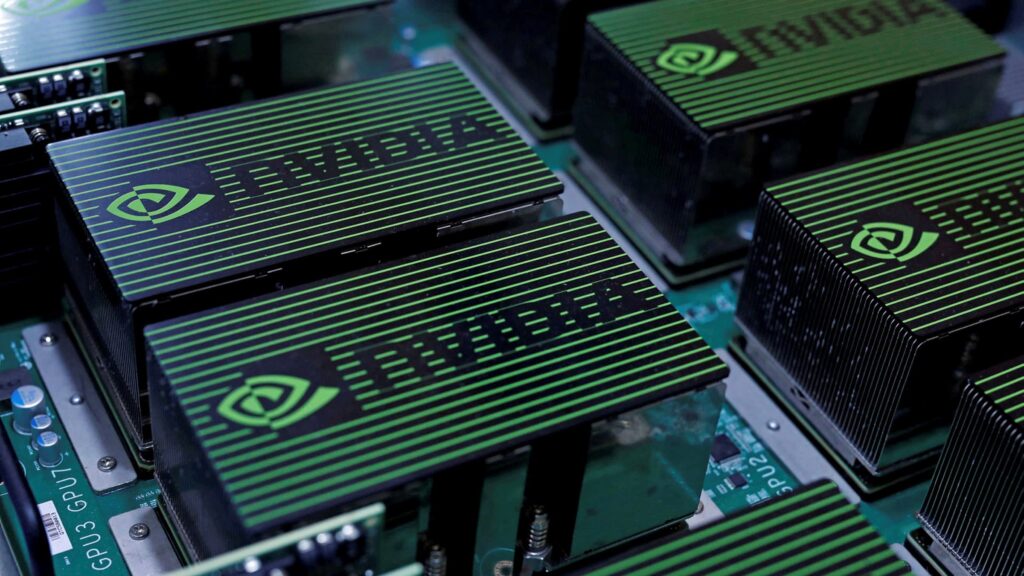Nvidia faces tough Arm wrestle


It is one thing for a regulator to give your deal a thorough going-over. It is another for it to imply publicly that your assurances about why the deal should proceed materialised too late to be credible.
In the event, Nvidia got both from the UK’s Competition and Markets Authority over its proposed acquisition of chip designer Arm from Japan’s SoftBank.
The UK government on Tuesday ordered an in-depth investigation of the competition and national security issues raised by the US company’s purchase of Cambridge-based Arm, a process that could take several months.
The transaction, which was announced in September 2020, is bogged down in regulatory reviews around the world. It is set to miss its initial timeframe of closing by March 2022 and could easily drag on well into next year.
And after a summary finding of “serious competition concerns” this summer, the CMA’s full phase 1 report doesn’t make for easy reading, from a regulator that is increasingly keen to be robust in vetting big, global sectors.
The government’s referral won’t surprise Nvidia. Arm’s “neutral” business model has always made it a difficult acquisition, not least for the world’s biggest semiconductor maker.
Arm licenses its designs to other chipmakers, providing scope to restrict rivals’ access to its technology or direct investment to an interested owner’s advantage. Nvidia has pledged to maintain Arm’s open licensing model, and expects to get a fuller hearing for its case in the more lengthy phase 2 inquiry.
Competition regulators don’t generally like the kind of behavioural commitments, or remedies, that would be needed to counter these concerns.
They are hard to define, police or enforce, and in this case the CMA noted five-year commitments don’t help with what is an enduring issue. This could be made tougher, said one former regulator, by the understandable concerns raised by other companies and flagged in the CMA’s report around disclosing sensitive information to a rival.
The regulator was also unusually direct in questioning Nvidia’s undertakings. True, it is standard practice for the regulator to look sceptically at material produced, or statements made once a legion of advisers get involved around a deal’s announcement. But the CMA noted that, while internal documents supported Nvidia’s desire to expand in datacentre technology through the deal, the commitments on neutrality came later, specifically “in likely anticipation of regulatory review of the merger”.
That scepticism was matched by its response to the suggestion that Arm, which was bought by SoftBank in 2016, will struggle to compete in the fast-changing world of chip design for datacentres, something that Nvidia’s investment dollars and expertise in artificial intelligence can address.
Nvidia’s decision to pay $40bn in cash and shares for Arm, now worth much more thanks to the US company’s rocketing stock price, was at odds with the gloomy assessment presented of its target’s strengths and growth prospects, said the CMA. SoftBank’s reports on Arm’s prospects in datacentres also painted a rosier picture.
These competition issues are only one hurdle, for a deal that is looking increasingly challenging to get done but is keeping a company in a fast-moving market in limbo.
Arm was a political talking point in 2016, when its sale to SoftBank was (like everything else) declared a win for post-Brexit Britain. This deal will ensure it remains so.
It is a rare UK tech success, with headquarters and most staff here — and Nvidia is likely to come under pressure to up its commitments over jobs and investment. Its previous sale from the London market was waved through with embarrassing ease. There is now a much more muscular political take on UK national security concerns with a particular focus on tech — one that is making itself felt even before new takeover rules come into force at the beginning of next year.
Even a year into the process, the wrestle to buy Arm looks a tougher and tougher fight.